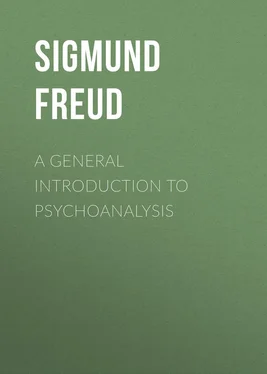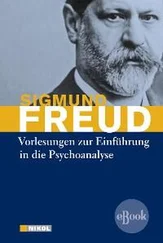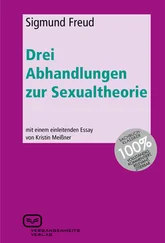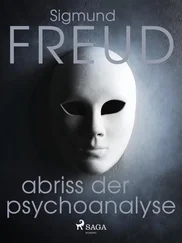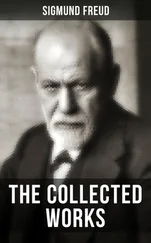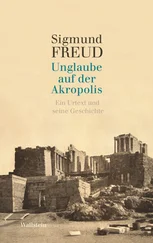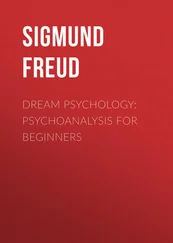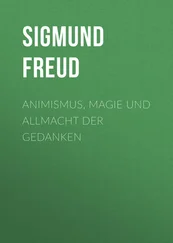Sigmund Freud - A General Introduction to Psychoanalysis
Здесь есть возможность читать онлайн «Sigmund Freud - A General Introduction to Psychoanalysis» — ознакомительный отрывок электронной книги совершенно бесплатно, а после прочтения отрывка купить полную версию. В некоторых случаях можно слушать аудио, скачать через торрент в формате fb2 и присутствует краткое содержание. Жанр: psy_theraphy, foreign_psychology, foreign_antique, foreign_prose, на английском языке. Описание произведения, (предисловие) а так же отзывы посетителей доступны на портале библиотеки ЛибКат.
- Название:A General Introduction to Psychoanalysis
- Автор:
- Жанр:
- Год:неизвестен
- ISBN:нет данных
- Рейтинг книги:4 / 5. Голосов: 1
-
Избранное:Добавить в избранное
- Отзывы:
-
Ваша оценка:
- 80
- 1
- 2
- 3
- 4
- 5
A General Introduction to Psychoanalysis: краткое содержание, описание и аннотация
Предлагаем к чтению аннотацию, описание, краткое содержание или предисловие (зависит от того, что написал сам автор книги «A General Introduction to Psychoanalysis»). Если вы не нашли необходимую информацию о книге — напишите в комментариях, мы постараемся отыскать её.
A General Introduction to Psychoanalysis — читать онлайн ознакомительный отрывок
Ниже представлен текст книги, разбитый по страницам. Система сохранения места последней прочитанной страницы, позволяет с удобством читать онлайн бесплатно книгу «A General Introduction to Psychoanalysis», без необходимости каждый раз заново искать на чём Вы остановились. Поставьте закладку, и сможете в любой момент перейти на страницу, на которой закончили чтение.
Интервал:
Закладка:
Associations of this character have been the subject matter of very enlightening experimental investigations, which have played a noteworthy role in the history of psychoanalysis. The Wundt school proposed the so-called association-experiment, wherein the subject is given the task of answering in the quickest possible time, with any desired reaction, to a given stimulus-word. It is then possible to study the interval of time that elapses between the stimulus and the reaction, the nature of the answer given as reaction, the possible mistake in a subsequent repetition of the same attempt, and similar matters. The Zurich School under the leadership of Bleuler and Jung, gave the explanation of the reactions following the association-experiment, by asking the subject to explain a given reaction by means of further associations, in the cases where there was anything extraordinary in the reaction. It then became apparent that these extraordinary reactions were most sharply determined by the complexes of the subject. In this matter Bleuler and Jung built the first bridge from experimental psychology to psychoanalysis.
Thus instructed, you will be able to say, "We recognize now that free associations are predetermined, not voluntary, as we had believed. We admit this also as regards the associations connected with the elements of the dream, but that is not what we are concerned with. You maintain that the associations to the dream element are determined by the unknown psychic background of this very element. We do not think that this is a proven fact. We expect, to be sure, that the association to the dream element will clearly show itself through one of the complexes of the dreamer, but what good is that to us? That does not lead us to understand the dream, but rather, as in the case of the association-experiment, to a knowledge of the so-called complexes. What have these to do with the dream?"
You are right, but you overlook one point, in fact, the very point because of which I did not choose the association-experiment as the starting point for this exposition. In this experiment the one determinate of the reaction, viz., the stimulus word, is voluntarily chosen. The reaction is then an intermediary between this stimulus word and the recently aroused complex of the subject. In the dream the stimulus word is replaced by something that itself has its origin in the psychic life of the dreamer, in sources unknown to him, hence very likely itself a product of the complex. It is not an altogether fantastic hypothesis, then, that the more remote associations, even those that are connected with the dream element, are determined by no other complex than the one which determines the dream element itself, and will lead to the disclosure of the complex.
Let me show you by another case that the situation is really as we expect it to be. Forgetting proper names is really a splendid example for the case of dream analysis; only here there is present in one person what in the dream interpretation is divided between two persons. Though I have forgotten a name temporarily I still retain the certainty that I know the name; that certainty which we could acquire for the dreamer only by way of the Bernheim experiment. The forgotten name, however, is not accessible. Cogitation, no matter how strenuous, does not help. Experience soon tells me that. But I am able each time to find one or more substitute names for the forgotten name. If such a substitute name occurs to me spontaneously then the correspondence between this situation and that of the dream analysis first becomes evident. Nor is the dream element the real thing, but only a substitute for something else, for what particular thing I do not know, but am to discover by means of the dream analysis. The difference lies only in this, that in forgetting a name I recognize the substitute automatically as unsuitable, while in the dream element we must acquire this interpretation with great labor. When a name is forgotten, too, there is a way to go from the substitute to the unknown reality, to arrive at the forgotten name. If I centre my attention on the substitute name and allow further associations to accumulate, I arrive in a more or less roundabout way at the forgotten name, and discover that the spontaneous substitute names, together with those called up by me, have a certain connection with the forgotten name, were conditioned by it.
I want to show you an analysis of this type. One day I noticed that I could not recall the name of the little country in the Riviera of which Monte Carlo is the capital. It is very annoying, but it is true. I steep myself in all my knowledge about this country, think of Prince Albert, of the house of Lusignan, of his marriages, his preference for deep-sea study, and anything else I can think of, but to no avail. So I give up the thinking, and in place of the lost name allow substitute names to suggest themselves. They come quickly – Monte Carlo itself, then Piedmont, Albania, Montevideo, Colico. Albania is the first to attract my attention, it is replaced by Montenegro, probably because of the contrast between black and white. Then I see that four of these substitutes contain the same syllable mon . I suddenly have the forgotten word, and cry aloud, " Monaco ." The substitutes really originated in the forgotten word, the four first from the first syllable, the last brings back the sequence of syllables and the entire final syllable. In addition, I am also able easily to discover what it was that took the name from my memory for a time. Monaco is also the Italian name of Munich; this latter town exerted the inhibiting influence.
The example is pretty enough, but too simple. In other cases we must add to the first substitute names a long line of associations, and then the analogy to the dream interpretation becomes clearer. I have also had such experiences. Once when a stranger invited me to drink Italian wine with him, it so happened in the hostelry that he forgot the name of the wine he had intended to order just because he had retained a most pleasant memory of it. Out of a profusion of dissimilar substitute associations which came to him in the place of the forgotten name, I was able to conclude that the memory of some one named Hedwig had deprived him of the name of the wine, and he actually confirmed not only that he had first tasted this wine in the company of a Hedwig, but he also, as a result of this declaration, recollected the name again. He was at the time happily married, and this Hedwig belonged to former times, not now recalled with pleasure.
What is possible in forgetting names must work also in dream interpretation, viz., making the withheld actuality accessible by means of substitutions and through connecting associations. As exemplified by name-forgetting, we may conclude that in the case of the associations to the dream element they will be determined as well by the dream element as by its unknown essential. Accordingly, we have advanced a few steps in the formulation of our dream technique.
SEVENTH LECTURE
THE DREAM
WE have not studied the problem of errors in vain. Thanks to our efforts in this field, under the conditions known to you, we have evolved two different things, a conception of the elements of the dream and a technique for dream interpretation. The conception of the dream element goes to show something unreal, a substitute for something else, unknown to the dreamer, similar to the tendency of errors, a substitute for something the dreamer knows but cannot approach. We hope to transfer the same conception to the whole dream, which consists of just such elements. Our method consists of calling up, by means of free associations, other substitute formations in addition to these elements, from which we divine what is hidden.
Читать дальшеИнтервал:
Закладка:
Похожие книги на «A General Introduction to Psychoanalysis»
Представляем Вашему вниманию похожие книги на «A General Introduction to Psychoanalysis» списком для выбора. Мы отобрали схожую по названию и смыслу литературу в надежде предоставить читателям больше вариантов отыскать новые, интересные, ещё непрочитанные произведения.
Обсуждение, отзывы о книге «A General Introduction to Psychoanalysis» и просто собственные мнения читателей. Оставьте ваши комментарии, напишите, что Вы думаете о произведении, его смысле или главных героях. Укажите что конкретно понравилось, а что нет, и почему Вы так считаете.
